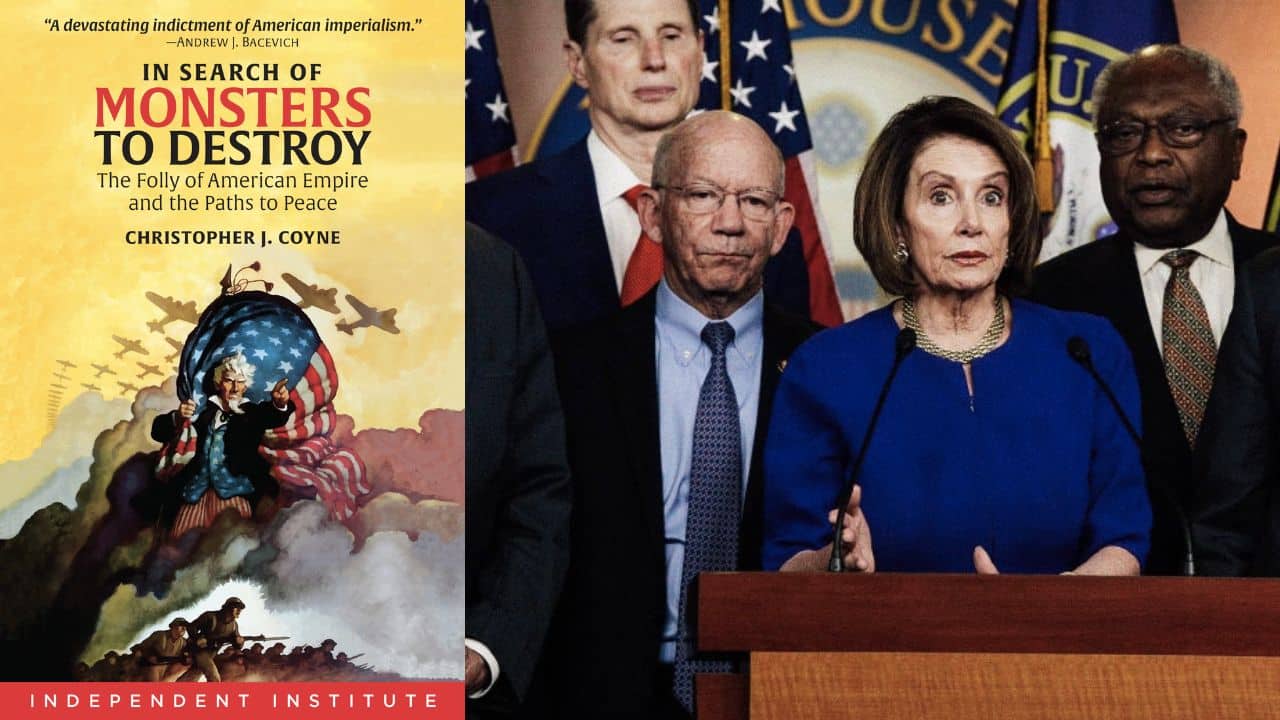My case for pacifism, to recap, comes down to three simple premises. The first two are empirical:
Premise #1: The short-run costs of war are clearly awful. [Empirical claim about immediate effects of war].
Premise #2: The long-run benefits of war are highly uncertain. [Empirical claim about people’s ability to accurately forecast the long-run effects of war].
These empirical claims imply pacifism when combined with a bland moral premise:
Premise #3: For a war to be morally justified, the expected long-run benefits have to substantially exceed its short-run costs. [Moral claim, inspired by Judith Jarvis Thomson’s forced organ donation hypothetical].
Bryan Caplan, “How Evil Are Politicians?: Essays on Demagoguery.” p. 125
Full video: Odysee
Book: In Search of Monsters to Destroy: The Folly of American Empire and the Paths to Peace
Christopher Coyne is Professor of Economics at George Mason University and the Associate Director of the F. A. Hayek Program for Advanced Study in Philosophy, Politics, and Economics at the Mercatus Center.
Podcast: Play in new window | Download








